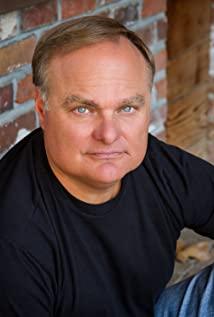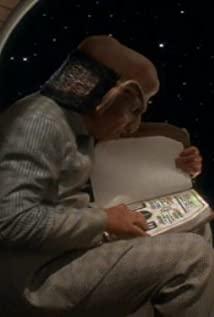It’s ridiculous. Watching a movie, I thought of the humanistic therapy in psychology. But I really admire the God played by Morgan Freeman. He reminds me of Carl Rogers who I watched in those years and remembers that I loved it. Humanism. Mr. Rogers once said to psychologists, "The future does not belong to the assemblers who make airplanes and cannons. The future belongs to you who are committed to the deep soul of mankind." His advancement of humanism has grown into a towering tree. To this day, humanism has become the guiding ideology of psychotherapy, and the other two schools of psychoanalysis and behaviorism of the three major schools have become under the guidance of humanism. The methodology of humanism combined with existential methods is even more invincible. In the film, Blues played by Jim Carrey plays some tunes but does not play blues. He has a lot of dissatisfaction but does not want to change it. He blames God all day, and his life slowly becomes a mess. He was arguing and arguing about those people who were like drunken children who vented themselves crazy. He would have ruined himself. Fortunately, he met God. God does not use psychoanalysis or behaviorism. The first thing he does is the principle of humanism that Rogers often emphasizes: unconditional active attention. He does not accuse or preach. He naturally "breaks the ice" through some small means. He gives his omniscience and omnipotence to Bruce so that he can slowly understand God and what life is, how miracles are produced, and their own existence. Meaning. This is an absurd story, but it is also a good story of how a person grows up and matures. Rogers has compared "guided psychotherapy and non-guided psychotherapy". The consultants of guided therapy are authoritative and will ask you what to do, and pave the way for you to go. It is required and even compulsory. The ground allows you to take that path; non-guided treatment is a friend-like existence, accompany you to encourage you, unconditionally actively pay attention to you, and he accompanies you to change slowly. One is similar to people using a stretcher to carry you forward, and the other is to give you crutches. The crutches will accompany you, but after all, you will slowly get well and leave it. This is an excellent case of psychotherapy. Bruce has gone from complaining about others to relying on divine power for selfish desires, acting arbitrarily and irresponsibly to satisfy people's willingness, slowly transforming into relying on his own strength to help others, sincerely caring for others, and slowly immersing himself in his own life. Living in the moment... It is a kind of enjoyment to watch Bruce's transformation, and I am delighted with his transformation. It is not a cure for me. Dog peeing throughout the film, and the final solution to behaviorism is also a magical solution. The masters of behaviorism have their own animals, Pavlov’s dog (conditioned reflex), Thorndike’s cat (middle cage experiment), Skinner Is the best among this group of druids , There are not only mice (Skinner box, upgraded version of the mysterious cage experiment), but also pigeons (rocket control). Of course, Watson was the most terrible. He not only studied Albert, but also wanted to study a dozen babies. (Watson's famous saying: If you give me a dozen healthy babies, I promise to train them into any kind of people according to my wishes, or doctors, lawyers, artists, big merchants, and even beggars and robbers.) Miss those I am immersed in the psychology of the time, and miss that humanistic self, and thank Mr. Rogers for understanding my loneliness and accompanying me as a young man.
View more about Bruce Almighty reviews











